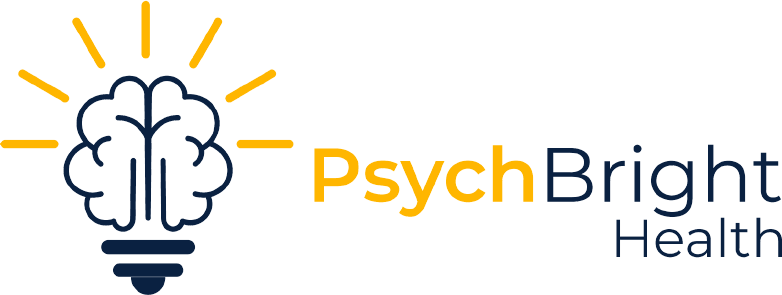Psychotic Disorders and Schizophrenia
Navigating the Labyrinth: Understanding and Managing Psychotic Disorders
Psychotic disorders can be deeply disorienting, with experiences like hallucinations and delusions disrupting your perception of reality. If you or someone you know is struggling with these challenges, you’re not alone. At PsychBright Health, we understand the complexities of these conditions and are committed to helping you find your way back to a stable and fulfilling life.
What are Psychotic Disorders?
These disorders affect the way you process and interpret information, leading to:
Hallucinations: Seeing, hearing, or feeling things that aren’t there.
Delusions: False beliefs held firmly despite evidence to the contrary.
Disorganized thinking and speech: Difficulty expressing thoughts clearly and coherently.
Disordered behavior: Actions inconsistent with the situation or environment.
Some common examples of psychotic disorders include:
Schizophrenia: A chronic disorder characterized by a combination of the above symptoms.
Schizoaffective Disorder: A combination of psychotic symptoms and mood symptoms like depression or mania.
Brief Psychotic Disorder: A shorter-lived but intense episode of psychotic symptoms.
How Can We Help?
As medical professionals specializing in mental health, psychiatrists offer comprehensive care for psychotic disorders:
In-depth evaluation: We meticulously assess your symptoms, medical history, and possible triggers to determine the specific diagnosis and understand your unique experience.
Personalized treatment plan: We collaborate with you and your loved ones to develop a plan that may include medication, psychotherapy, education, and community support, tailored to your specific needs and goals.
Medication management: Antipsychotic medications can significantly reduce the severity and frequency of psychotic symptoms, improving daily functioning.
Psychotherapy: We offer evidence-based therapies like Cognitive Behavioral Therapy (CBT) to address unhelpful thought patterns and develop coping mechanisms.
Family therapy and support groups: Involving family members and connecting with peers facing similar challenges can provide invaluable support and understanding.
Treatment Options:
Cognitive Behavioral Therapy (CBT): CBT helps you identify and challenge distorted thinking patterns that contribute to delusions and hallucinations, developing coping skills for managing them.
Social Skills Training: This therapy improves communication and social interaction, enhancing social integration and well-being.
Community Support Services: Joining support groups or participating in vocational rehabilitation programs can foster a sense of belonging and empower you to manage your condition effectively.
Medication Management: Antipsychotic medications are the cornerstone of treatment, requiring careful monitoring and potential adjustments over time.
We also offer antipsychotic long acting injectables (LAI’s) to help improve adherence to medication and reduce side effect burden.
Your Path to Recovery
We believe in a collaborative and patient-centered approach, ensuring you feel empowered and involved in your treatment journey. We understand that recovery is a unique process, requiring patience, understanding, and ongoing support. We create a safe and supportive space for you to share your experiences and work towards achieving your goals.
Psychotic disorders require careful monitoring. We provide regular follow-up appointments to assess the effectiveness of the treatment plan and make necessary adjustments
Ready to find your way back?
Contact us today for a consultation and let’s explore how we can work together to manage your psychotic disorder and navigate towards a brighter future. Remember, with the right diagnosis, treatment, and support, you can reclaim your life and experience hope and recovery.

